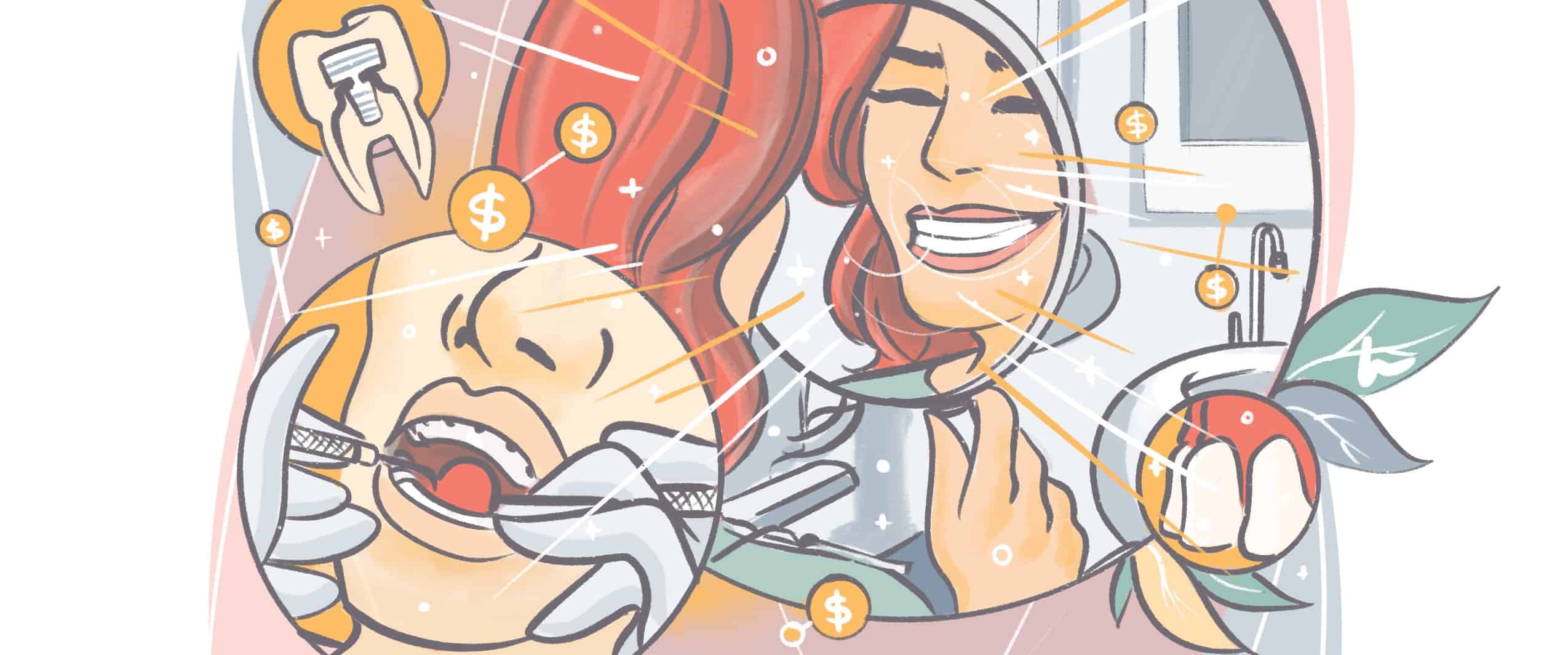Tips and tricks for unlocking cash flow during COVID-19.
by Dana Apuy, Billing Specialist
There are many new challenges dental practices are facing due to the current COVID-19 pandemic. During this time, it may be hard to increase your dental revenue. These challenges present a unique opportunity to analyze previous practice behaviours, search for improvements, and implement new procedures to increase productivity and efficiency.
An essential focus of any dental practice is to continue to generate and to maintain a steady revenue regardless of any encountered unique COVID-19 circumstances. The bread and butter of most practices is the acceptance of all insurance plans; this generally accounts for 90% of the practice’s incoming revenue, with 15-20% of patients paying cash.
A disruption in this cash flow can cause serious setbacks within your practice, especially during this difficult time. To avoid any potential issues, here are four steps to ensure steady cash flow to your dental practice during the COVID-19 pandemic:
1. Audit Outstanding Insurance Claims
Regular auditing of aging insurance accounts can reveal numerous outstanding claims at risk of exceeding a timely filing. If these insurance accounts are allowed to extend beyond the established time limits, you could risk losing thousands of dollars in revenue. Here are some of the best auditing practices:
- Develop an auditing schedule. A routine auditing schedule and procedure in your practice will not only save you time and money but also earn your practice increased revenue as well.
- Be aware of filing time limits. A practice well versed in filing time limits has a good basis when developing an auditing schedule. For example, government plans and Ameritas usually have a timely filing limit of 90 days, while commercial plans typically have a limit of 12-24 months. Keeping these different time limits in mind will assist you in keeping your practice’s schedule on track and will also avoid increased work burden on staff by unnecessary repetitive auditing.
- Check for completion of electronic transmissions. Sometimes these fail to submit, and transmissions do not make it to the clearinghouse or insurance company. Without a timestamp from your clearinghouse, you can lose out on a timely filing appeal and money for those claims.
- Gather missing documentation. Other claims could be on file but still pending additional documentation, which can easily be faxed or emailed over for quick processing.
- Monitor orthodontic claims. Keep in mind that some carriers require an orthodontic statement to receive quarterly payments.
Collect 99% of your claims
We settle your claims, so you don’t settle for less.
2. Check Patient Balances
Uncollected balances and cancelled/missed appointments are a source of lost revenue. Many people are experiencing significant lifestyle changes in this current COVID-19 environment. They may simply need a reminder about any upcoming appointments, as well as previous balances or co-pays due.
- Consider sending daily statements. Regular statements can be useful for patients that make partial payments or for any balances resulting in a patient co-pay after insurance has paid.
- Review cancelled treatments/approaching patient appointments. Consider asking for a deposit to secure appointments and to remind patients of their upcoming due balances.
- Explore a membership program/financing option. Some patients are experiencing hardship due to COVID-19. Address this by setting up a membership program. Offering multiple financing options for patients allows flexibility and accountability.
3. Adjust Insurance/Practice Fees
The majority of insurance fees are calculated by the yearly utilization and cash fees reported by each dentist in your area. If your cash fees are hovering around the 40% range and your neighbor/colleague is hovering around 80%, then your practice is not on an even playing field with respect to the insurance carriers. As such, you could be at risk for not receiving higher fee increase updates, unlike your neighboring dentist.
- Perform a yearly checkup. Establish a protocol to check your UCR “cash fees” to even out the competitive field.
- Consider how your practice is networked. Are you contracted with the highest paying network? Insurance carriers will compare how many networks you are sharing and pay the lowest fee possible.
- Increase fees. Consider increasing fees 5%-15% across-the-board to compensate for PPE costs.
- Conduct a marketing campaign. Target high-dollar procedures and schedule high-production patients at 50% of your schedule over the next eight weeks. Fill in smaller procedures whenever possible.
4. Apply Updated CDT Codes
A successful dental practice knows the value of being familiar with current CDT codes. The ADA has announced newly updated guidelines designed to aid practices in adapting to COVID-19 guidelines. Keeping your practice on track with updated coding knowledge as well as how to implement new codes in billing practices ensures revenue is being generated for procedures and work being completed during unique situations encountered during the COVID-19 pandemic. A couple of other notable codes include:
- D1999 – COVID-19 PPE Cost. As practices continue to follow diligent COVID-19 guidelines to promote health and safety within the dental practice, this can help meet PPE resource needs.
- D9995/D9996 – Tele-dentistry. Some carriers will pay for a tele-dentistry code or a D0140 when billed in conjunction. Both codes must be billed together to be considered for reimbursement. Check with your state insurance policies to see if tele-dentistry is allowed in your state.
We know this is a difficult time, and decreased patient flow has brought new challenges for earning the money your practice needs to thrive. Increase your dental revenue by staying on top of simple audits, patient balances, and balancing your fees to unlock the cash flow your dental office needs.
Collect 99% of your claims
We settle your claims, so you don’t settle for less.








